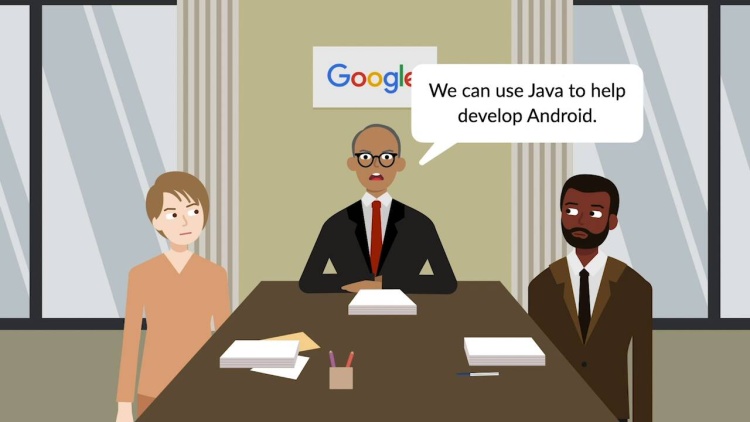Oracle America, Inc. v. Google, Inc.
United States Court of Appeals for the Federal Circuit
750 F.3d 1339 (2014)

- Written by Cynthia (Anderson) Beeler, JD
Facts
Oracle America, Incorporated (Oracle) (plaintiff) developed a computer-programming platform called Java. In addition to the programming language, the Java software provided pre-developed code to accomplish common tasks consistently across programs. The pre-developed code was grouped into packages. Each package contained a set of methods, organized into classes, that would instruct the program to accomplish a certain task based on the method identified. Computer programmers became accustomed to using Java’s designations at the package, class, and method level. After negotiations fell through to license Java for use in developing software programs for its Android mobile devices, Google, Incorporated (Google) (defendant) created its own Java-based programming platform. Google’s platform used a mix of Java’s pre-developed packages and packages developed by Google’s own programmers. Oracle sued Google for copyright infringement based on the 37 Java packages that Google copied from Oracle’s platform. Google admitted to copying the packages to enable software developers to continue using designations with which the developers were already familiar. The district court found that none of Oracle’s Java packages were entitled to copyright protection and that Google therefore did not infringe. Oracle appealed.
Rule of Law
Issue
Holding and Reasoning (O’Malley, J.)
What to do next…
Here's why 910,000 law students have relied on our case briefs:
- Written by law professors and practitioners, not other law students. 47,100 briefs, keyed to 997 casebooks. Top-notch customer support.
- The right amount of information, includes the facts, issues, rule of law, holding and reasoning, and any concurrences and dissents.
- Access in your classes, works on your mobile and tablet. Massive library of related video lessons and high quality multiple-choice questions.
- Easy to use, uniform format for every case brief. Written in plain English, not in legalese. Our briefs summarize and simplify; they don’t just repeat the court’s language.





